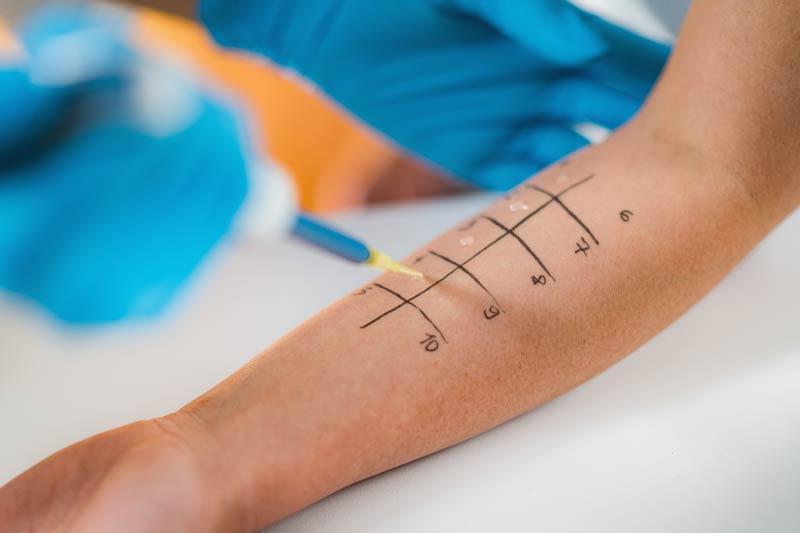Allergy Testing Explained: How to Identify Triggers and Take Control of Your Health

Allergies are more than just seasonal sniffles—they can affect your breathing, digestion, skin, and overall quality of life. Millions of people worldwide live with undiagnosed allergies, often unaware of the exact triggers behind their symptoms. That’s where allergy testing comes in.
What Is Allergy Testing?
Allergy testing is a medical procedure used to determine whether your body has an allergic reaction to a specific substance. These substances—called allergens—can range from foods, pollen, and mold to pet dander, insect stings, or medications.
When you’re exposed to an allergen, your immune system may treat it as a threat, releasing chemicals like histamine to defend your body. This can cause symptoms such as:
- Sneezing or nasal congestion
- Skin rashes, hives, or eczema
- Swelling of the lips, tongue, or face
- Digestive issues like bloating, cramping, or diarrhea
- Asthma or shortness of breath
If you're dealing with any of these symptoms, allergy testing can help identify the culprit.
Why Consider Allergy Testing?
If you're regularly experiencing symptoms that don’t seem to have an obvious cause, allergy testing can offer clarity. Here’s why it matters:
1. Precise Diagnosis
Rather than guessing which foods or environmental factors are causing your symptoms, allergy tests provide concrete results.
2. Targeted Treatment
Once allergens are identified, your doctor can develop a personalized treatment plan that may include medication, avoidance strategies, or immunotherapy.
3. Improved Quality of Life
Knowing your triggers allows you to make informed decisions and lifestyle changes that reduce or eliminate symptoms.
Types of Allergy Testing
There are several types of allergy tests, each designed for different symptoms and situations. Your healthcare provider will choose the best method based on your medical history and the nature of your reactions.
1. Skin Prick Test (SPT)
This is the most common and widely used method. A small amount of an allergen is placed on your skin (usually the forearm or back), and the skin is gently pricked. If you’re allergic, a small raised bump will appear within 15–20 minutes.
Pros:
- Quick results
- Inexpensive
- Highly accurate for airborne and food allergens
Cons:
- It can’t be used if you’re taking antihistamines
- Not ideal for people with severe skin conditions
2. Intradermal Skin Test
In this test, a small amount of the allergen is injected just under the skin. It’s more sensitive than a skin prick test and is often used to confirm negative SPT results.
3. Blood Test (IgE Testing)
Also known as specific IgE testing or RAST, this test measures the level of allergen-specific antibodies in your blood.
Pros:
- Safe for people with skin conditions
- No need to stop antihistamines
- Suitable for young children
Cons:
- Results take longer
- Less sensitive than skin testing for some allergens
4. Patch Testing
Used to detect delayed allergic reactions such as contact dermatitis. Small patches containing potential allergens are applied to your back for 48 hours, and your skin is examined for reactions.
What Can Allergy Testing Detect?
Allergy testing can identify a wide range of allergens, including:
- Environmental allergens: pollen, dust mites, mold, pet dander
- Food allergens: peanuts, shellfish, milk, eggs, wheat, soy
- Insect stings: bee, wasp, hornet venom
- Medications: penicillin, other antibiotics
- Chemical allergens: fragrances, metals (like nickel), preservatives
How to Prepare for an Allergy Test
To ensure the most accurate results:
- Avoid antihistamines for 3–7 days before your test (as advised by your doctor)
- Inform your doctor of all medications and supplements you're taking
- Eat normally unless you’re instructed to fast
- Avoid using lotion or perfume on the test area
- Arrive relaxed and hydrated
What Happens After Allergy Testing?
Once your results are ready, your provider will go over each allergen tested and explain any positive or negative reactions. From there, you can begin a personalized allergy management plan, which may include:
- Allergen avoidance: Making lifestyle changes like using air filters, switching diets, or avoiding pets
- Medications: Including antihistamines, decongestants, or corticosteroids
- Allergy shots (immunotherapy): A long-term solution that can reduce your sensitivity to allergens over time
- Emergency action plans: For those with severe allergies, especially to food or insect stings, carrying an epinephrine auto-injector (like an EpiPen) may be necessary
Are There Any Risks?
Allergy testing is generally safe but may cause minor side effects such as redness, swelling, or itching at the test site. In rare cases, more serious allergic reactions can occur—especially with intradermal testing. That’s why it’s important to have tests performed in a medical setting by trained professionals.
Final Thoughts
If your symptoms are interfering with your day-to-day life, allergy testing could be the first step toward lasting relief. With the help of a qualified provider, you can uncover hidden triggers and build a customized care plan that supports your health and wellness goals.
- Art
- Causes
- Crafts
- Dance
- Drinks
- Film
- Fitness
- Food
- Giochi
- Gardening
- Health
- Home
- Literature
- Music
- Networking
- Altre informazioni
- Party
- Religion
- Shopping
- Sports
- Theater
- Wellness


